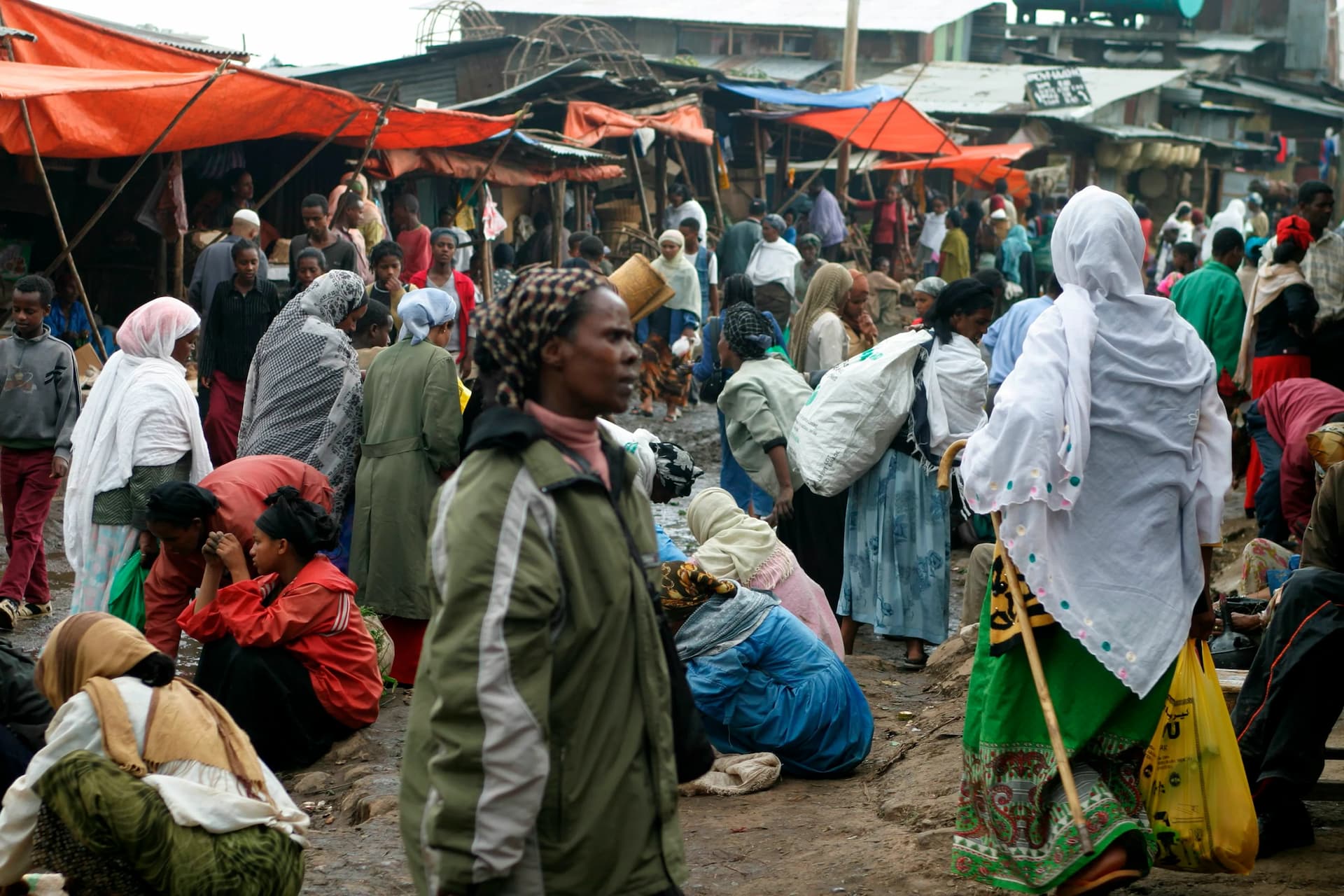Progress for 0 ad
Progress for 1 ad
Progress for 2 ad
Progress for 3 ad


Daniel Metaferiya
Addis Ababa, Ethiopia

From the buzzing sidewalks of Shola Market to the sprawling chaos of Merkato, Ethiopia’s capital pulses with the daily rituals of trade: vendors calling out to passersby, hands flying over piles of produce and worn-out merchandise, and the ever-familiar rustle of plastic bags.
But change is in the air, or at least, on the books. Two months ago, Ethiopia's Parliament passed a sweeping ban on single-use plastics, sending ripples of confusion, skepticism, and reluctant compliance through the city’s labyrinthine markets.
At first, the law was met with laughter. The idea of being fined up to 5,000 birr for using what locals colloquially call festal bags seemed absurd to many. But the joke quickly lost its edge. Some shoppers, visibly unnerved, began transferring groceries from plastic into paper bags with the discretion of someone handling contraband.
Still, other shoppers like Tewodros Tefera, who makes his weekly rounds at the Shola Market on Sundays, remain skeptical of the implementation. “The paper bags are not nearly strong enough,” he said, shaking his head. Around him, vendors continued business as usual, their stalls draped in colorful plastic, the ground beneath littered with discarded fragments of the same.
He is among the hundreds of customers in the bustling market yet to take up reusable sacks or woven baskets for their groceries.
Only a few early adopters have embraced reusable sacks, many emblazoned with foreign logos, but the majority cling to the convenience of plastic. Vendors, for their part, remain largely in the dark as the six-month transition period is set to begin ticking. While some vendors are awaiting the crippling batons of Code Enforcement Authorities to start swinging, most are just confused about the details of the plastic overhaul.
Dawit Gashaw, an owner of a small bakery around the Ayat neighborhood, does not see himself switching to non-plastic alternatives anytime soon. He says hot bread sold in a bag easily spoils while also risking the fabric being stuck to the loaves.
“We are selling hot edible products,” Dawit told Shega.” It is not clothes or shoes.”
He believes that different types of baked items require different packaging. Noting how large cakes can be sold in cartons, Dawit stresses that it can’t apply to injera or bread. While he has yet to find any suppliers of alternative packaging products, the baker hopes to follow in the footsteps of other food stuff vendors as strict enforcement ensues.
“Rules are rules after all,” he said in a reluctant tone, subtly hinting at fearful anticipation for the ratified law to be printed in the Negarit Gazette.
However, the trepidation in business owners does not arise from a disavowal of the destructive impacts caused by plastics but from on-ground supply chain issues. A small paper bag, not more than eight inches tall, costs around 20 Birr a piece while a plastic alternative several times larger fetches a maximum of 10 Birr. Furthermore, finding durable, reliable, and suitable alternatives to plastic is a daunting task.
When Rwanda, the first African country to crack down on plastic, issued its first set of ordinances back in 2008, few could foresee the strict subsequent implementation. Through the roll out of a Climate Change and Environment Fund, incentivization of waste collection companies, and community mobilization, Kigali is now regarded as the tidiest city in Africa by many. However, Rwanda slowly built up its waste management capabilities over a decade before issuing an all-out ban on single-use plastics in 2019. Ethiopia’s approach, while predicated on legitimate environmental concerns, could risk pitting the economy against green objectives.
The Ethiopian Plastic & Rubber Manufacturers Association (EPRMA) warned that over 200 factories could stop operations, risking around 268,000 jobs. In a statement to a local digital media outlet, the Association disclosed that nearly 400 tons of discarded plastic are collected by the sector daily, which significantly reduces the hazardous burden on the country's natural ecosystem.
As the plastic ban strums the strings of doom for some, it has laid the foundations for a thriving business adventure for others. Wrap and Go, a five-month-old startup founded by three recent college graduates, is looking to do just that. Yabtsega Temesgen, the company’s marketing lead, says their main business strategy is predicated on the phaseout of single-use plastics. He believes that the market will grow so fast that no number of new suppliers can saturate it anytime soon.
“We already have several clients queued up,” Yabtsega told Shega.
If Ethiopia manages to successfully phase out single-use plastics, it will be the most populous African country to do so. Tied to the ten-year plastic waste management roadmap unveiled last May, which looks to foster a circular economy, it could go a long way in reducing per capita consumption, wavering at 2.6kg in 2021. A delicate and intentional implementation might be the only way to attain it.
👏
😂
❤️
😲
😠

Daniel Metaferiya
Daniel Metaferiya is a writer, journalist and radio host, with a keen interest in technology. He follows developments in Ethiopia's startup ecosystem closely and is passionate about profiling unique MSMEs.
Your Email Address Will Not Be Published. Required Fields Are Marked *